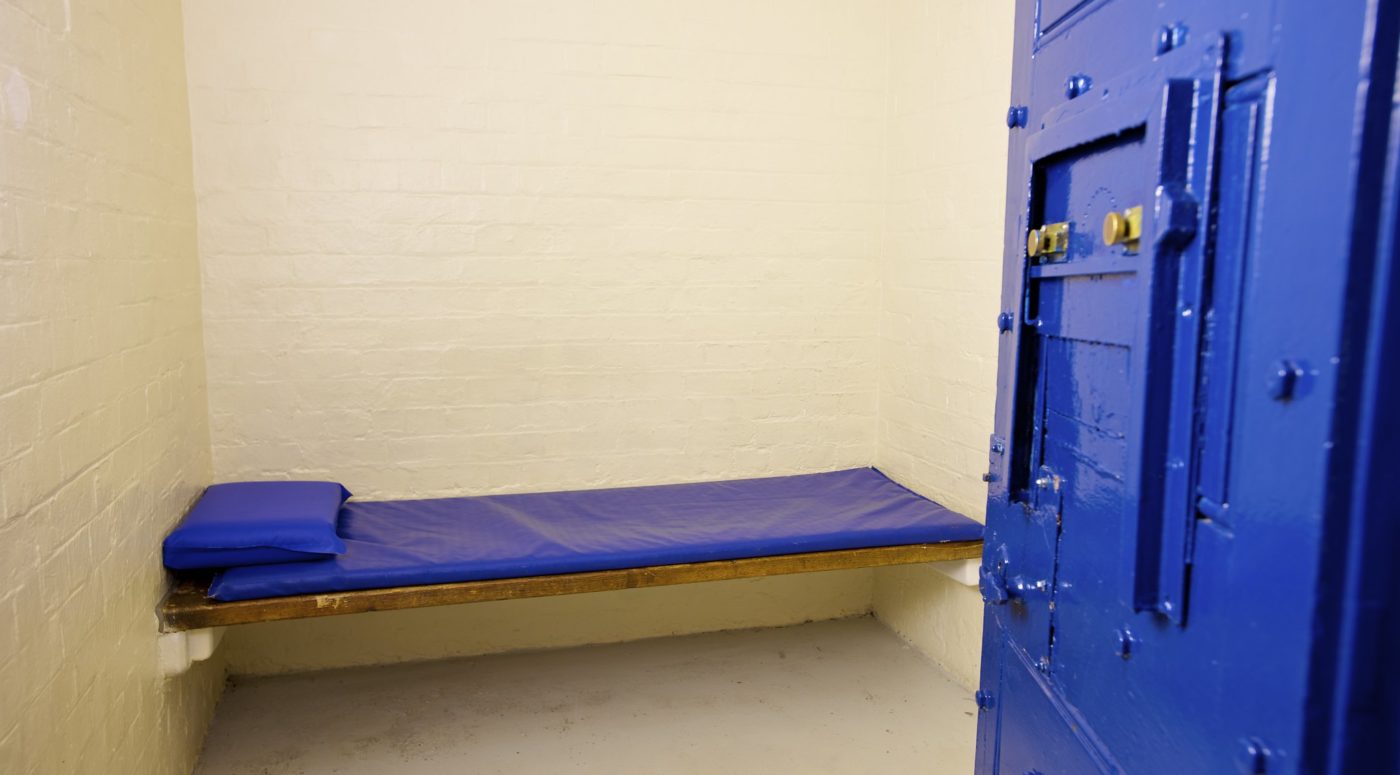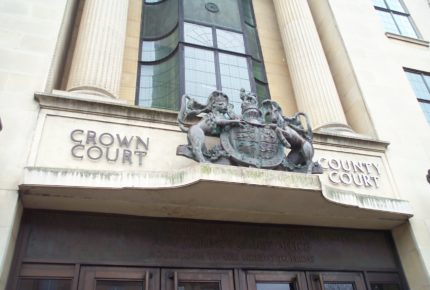

If you have engaged – or think you might have engaged – in criminal activity, you might be left wondering how long after a crime you can be charged in the UK. This is not surprising, and it is a question that criminal solicitors are asked often. Being involved in any criminal activity, whether directly or indirectly, often brings about great feelings of anxiety and guilt, and knowing how long it might take for the police to arrest you or for you to be charged with a crime is at the forefront of many people’s minds. If you find yourself in this position, it is important to know that such time periods largely depend on the crime itself. This article written by expert criminal defence solicitors will help you find out more about how long it might take to be charged with a crime, and what your rights are if you find yourself in such a position.
Do all crimes have a time limit?
First things first, it is important to know that while most crimes do have a time limit in which the accused can be charged, there are some types of crimes where there is no time limit for charges to be levied. One such type of crime is historical sexual abuse. In these cases, charges may be brought against a person at any time. That this is so with sexual crimes relates mainly to the fact that so many people feel unable to come forward to report sexual abuse, so it can often take years – sometimes decades – for people to be charged.
What happens if I am taken into custody?
It is very important to contact a lawyer as soon as you are arrested and taken to a police station. If you do not have your own solicitor, you are entitled to the help of the duty solicitor. Upon arrest, it is likely that you will be taken into an interview room where you will be questioned by officers. If you were drunk or otherwise intoxicated when arrested, you will be kept in a cell to sober up before questioning.
Once in the interview room, the officers will ask you questions about yourself and what occurred. If they have sufficient reason to believe you did in fact commit the crime, they will try to get you to admit guilt in that interview. The interview will be recorded and may be used as evidence if the police decide that they have a case for the Crown to prosecute. The solicitor will advise you as the questions are being asked, and in particular they will try to ensure you do not answer in such a way as to incriminate yourself.
If you are feeling uncomfortable, remember that you have the right to remain silent and that you can answer ‘No comment.’ or ask your solicitor for help if you are unsure of what to say or what is happening. Throughout the interview process, you may stay in one room, you may change rooms, or you may be returned to a cell while the police decide on a course of action or review any evidence that comes in.
If the police do not have enough evidence or are satisfied throughout the interview that you are not culpable, they may release you on the spot without any further follow-up.
For how long can the police hold someone?
In most cases, you may be detained in police custody for a maximum of 24 hours before you must either be charged or released without charge. If the police do not have enough information or evidence against you at the time, it may be the case that you are released on bail to return in the future to be questioned again.
If you are suspected of a serious crime – for example, murder – you may be held in custody up to 96 hours (four days). If you are arrested on terrorism grounds, you can be held in police custody without being charged for as long as 14 days.
Do you have to answer police questions?
Many people who have interactions with the police wonder whether you have to answer police questions. This is the case whether you have been stopped in the street, whether you have been taken into a police station for questioning, or whether you have been asked to voluntarily present yourself for questioning. Whether you have to answer police questions in the UK is a matter of law to some extent, but it is also a matter of criminal defence strategy, and that means it is best to seek the advice of a solicitor on the matter as soon as feasible when the situation arises.
If you have been stopped by the police, in general you do not have to answer any questions. There are complex laws surrounding ‘stop and question’ and ‘stop and search’ procedures in the UK, and this can make understanding your rights in these situations quite difficult. The short answer, however, is that you do not have to answer any police questions and you can stress your right to legal representation if the officer continues to push you for answers. This may mean that you have to be taken to a police station to answer questions, and that you have to arrange for legal representation, but depending on the situation this may be in your best interest anyway even though it takes longer and is a hassle. The fact that you have not answered questions is not a legitimate reason to search or arrest you in the UK.
If the police have ‘reasonable grounds’ to suspect that you are a danger to the public or to yourself, which might be indicated by you having illegal drugs, weapons, stolen property, or some other suspicious implement that could be used in a crime, then they do have the right to stop and search you, but again, you do not have to answer police questions.
If you are in a police interview, you also do not have to answer every question that they ask you. In many cases, it may be in your best interest to answer, ‘No comment.’ This lowers the risk of self-incrimination or saying something that you did not really mean because of the stress of the situation. That being said, there are a number of instances in which cooperating with the police is a good idea. Realistically, the only way of knowing how best to proceed in such a situation is to get expert criminal defence advice from a qualified and experienced representative as soon as possible when questioning begins.
What happens afer the police interview?
If you are interviewed by police and they believe that they have enough evidence against you, they can charge you straight away at the police station. Once you have been charged, you will be given a piece of paper (the ‘charge sheet’) that outlines the charges. The charge sheet will also specify whether you have been released on bail, and what conditions are attached. At this point, you must promise to appear at the first scheduled court date. If you are held in custody, you will appear in remand court to apply for bail and the court will decide whether or not you are to be released (usually decided by considering whether you would be a risk to yourself or to the general public).
When you are released on bail, you will be given conditions to comply with. Any failure to comply with all of the conditions listed on the bail document will result in you being arrested again and your bail may be revoked, meaning that you will need to remain in custody until your next court appearance. It will be more difficult to get bail from the court if you did not comply with previous bail conditions and your bail was revoked.
Being released under investigation
The police have the option of releasing you under investigation after your interview instead of being given a bail date (where you must return to the police station). Once you are released, the investigation into the alleged crime and your alleged involvement in it will continue. The police will continue to gather evidence and interview related parties. While the police are investigating, you may be obligated to speak to them again or they may re-arrest you. You may be required to attend another interview at the station.
There are many moving parts to a police investigation so there is no way to predict how long it will take. The main factors that impact investigation length include the type of offence, evidence from witnesses, your statement and any evidence you present of your innocence (an alibi, for example). The police will normally contact you to let you know the results of their investigation, but sometimes you have to call your solicitor to find out what is happening.
After the investigation is completed, you should receive a letter stating that no further against will result against you or you will receive a postal requisition requiring you to attend court at a specific date in the future. The letter should set out the date, time, address and courtroom that you need to appear in.
I’ve been released under investigation – Is there a time limit for a decision?
Unfortunately, being released under investigation does not come with a set time limit for when you are notified of any consequences. This can be very frustrating, especially when you are trying to plan how you might respond to the situation and think about the potential impacts it could have on your life. This is an area of law that is complained about significantly, so it may be the case that in the future time limits will be imposed on investigations. But for now, at least, it remains in the public interest for the police to be able to conduct their investigations in the time that they believe is appropriate, and that, unfortunately, means that many people who are released under investigation are not aware of any time limits that are placed on their case (even if the police set them internally).
How do I know whether my case will go to court?
Once an investigation has been completed by the police, they may forward all of the results over to the Crown Prosecution Service (CPS). At that point, either the police or the CPS will decide if the case should proceed to court. If it is decided that your case will not proceed, the victim should be advised of those reasons within five business days.
If the defendant decides to plead guilty at a court hearing, the case will not proceed to trial and the victim will not need to appear at court. If a case does proceed to trial and the victim and other Crown witnesses do not appear on the appointed court date, the Crown will direct a Stay of Proceedings, which means that they cannot proceed to prosecute the case. If that occurs, the defendant is free to go, with no consequences.
Can the police charge you without evidence?
One of the most common questions that we get asked as criminal defence solicitors is, ‘Can the police charge you without evidence?’ The question of whether the police can charge you without evidence can be a complex one, depending on the situation at hand. In general, the police can charge you without evidence, but the prospects of that case actually going to court rely heavily on whether the CPS believes there is enough evidence to convict you.
What this means in practice is that you may be arrested and charged for an offence, but if the police do not have enough evidence to make your conviction a probability, they are unlikely to continue to pursue a case against you. This is because they don’t want to spend valuable – and limited – resources on your case if there is no realistic prospect of you being found guilty in the end.
Naturally, you may be wondering why the police would charge you if they don’t have enough evidence. The simple reason here is that the police may believe that finding evidence against you is a possibility, and therefore they don’t want to release you without any charges if they may, at some point, find sufficient evidence to want to bring you back in for questioning, or to charge you with the offence at hand.
How long might I stay on bail without being charged?
The police are under a legal obligation to perform their investigations ‘expeditiously’ and ensure that the suspect’s liberty is not restricted by way of bail, for longer than is absolutely necessary. In 2017, the law in the UK changed to put a 28-day time limit on bail, but this does not prevent the police from extending the bail period.
However, given the shortage of police officers, the reduction in policing budgets, the reductions to prosecution budgets and the general increase in workloads for police officers; it is not uncommon for suspects to be on bail for a lengthy period before receiving a decision in their case.
Whilst minor crimes are handled relatively swiftly and charging decisions reached almost instantly, serious cases or those with any degree of complexity or volume, will usually take a long time before a decision is reached.
For a serious crime or one that is not so straight-forward, you may expect to be on bail for 3 months to 2 years. Why such a long time? Because the police will usually seize paperwork from your addresses, seize digital devices and retrieve samples for forensic analysis. All this material must be sent to third party experts who analyse them and prepare reports for the police, who must then seek advice from the prosecutors. After this, the police will need time to consider their strategy and think of interviewing you again or conducting further enquiries to tie up any loose ends they may have found.
These processes will usually take a long time and your bail will usually be extended several times to allow the police to undertake their enquiries.
How many times can you be ‘Rebailed’ in the uk?
Strictly, there is no limit to the number of times that you can be bailed in the UK. This also applies to cases where you are ‘rebailed’. In other words, there is no limit to the number of times that the police can put you on bail, release you from bail, and then put you back on bail if they decide to do so.
The reason for this is because in 2017 the law changed to prevent police from keeping people on bail for weeks, months, or sometimes even years at a time. It was decided that it was unfair to keep people on bail for this long, and that there should be a 28-day limit put on bail duration.
Unfortunately, the possibility of being put on bail and then released from bail and then put on bail again (which some people call being ‘rebailed’) has not been eradicated. The rationale here is that the police need to have the power to investigate crimes properly and thoroughly, and this varies from case to case. This means that in some cases the police may need longer than 28 days to investigate the crime properly, wait for people to come forward, gather evidence from other parties, and so on. As such, a strict 28-day limit on bail is not really in the public interest.
In practice, then, people may still be kept on bail for weeks, months, or sometimes even years at a time, but it is broken up into 28-day segments, as opposed to being one longer timeframe.
Does ‘No Further Action’ go on your police record?
After the police and CPS have made their decision on your case and they conclude that no further action should be taken, you may be wondering whether ‘no further action’ shows up on your criminal record.
Unfortunately, it is not always clear whether no further action shows up on a criminal record. This is because there are different levels of criminal record checks, which involve different levels of disclosure to the party that is asking for the check.
For example, sometimes only basic information will be shown on the check, and sometimes more detailed information will be shown, if the situation warrants it (for example, if you are applying for a job where particularly vulnerable people are involved and the employer needs to know more about your background to ensure that you are safe to work with those people).
In general, no further action will remain on the Police National Computer (PNC), and it will not show up on a basic Disclosure and Barring Service (DBS) check. It is likely, however, that it will show up on an enhanced DBS check, and therefore there is no guarantee that employers (or others who are seeking to see your criminal record) will not be able to see that no further action was taken on your case.
In many ways, this seems unfair because if no further action was taken, it shows that you did not do anything worth pursuing criminally. That being said, there has to be a record somewhere that you have at least had those interactions with the police, and for this reason it remains on the PNC in case the mere fact that you were questioned and investigated is ever relevant again.
What to do if you have been – or think you might be – charged with a crime?
If you are facing criminal charges, the most important thing to do is get clear on your rights and make sure that you understand the charging procedure going forward. While such information cannot prevent you from facing criminal sanctions, knowing what is likely to happen makes the process much easier to deal with. At Stuart Miller Solicitors, we have an expert team of friendly and non-judgmental criminal lawyers who can advise you on charging time limits and charging procedures. To find out more about how we can help, please get in touch for a no-obligation consultation.
OUR COMMITMENTS TO YOU:
-
Responsive
A legal expert will consult you within 24 hours of making an enquiry.
-
Empathetic
We will always treat you with trust, understanding and respect.
-
Specialised
Your case will be handled by an expert who specialises in your type of offence.
-
Proactive
We will take early action to end proceedings as soon as it is practically and legally possible to do so.
-
Engaged
You will be kept updated on your case at all times. We will provide a named contact available to answer your questions.
-
Caring
We understand this is a difficult and stressful time for you and your family. Our team will support you every step of the way.
-
Tenacious
We will never give up on your case. We fight tirelessly to get you the best possible outcome.

